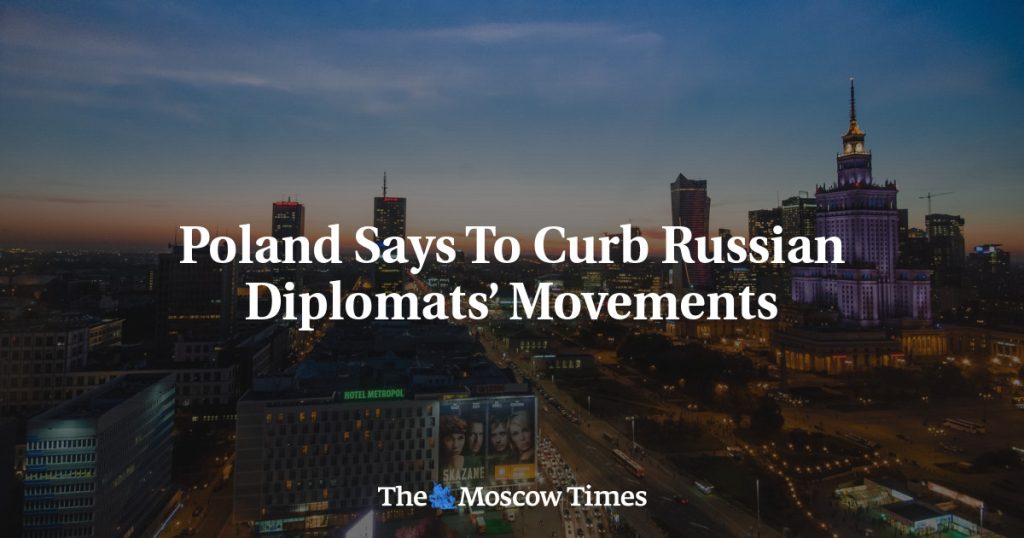Poland recently announced restrictions on the movements of Russian diplomats on its soil. This decision came after several people were detained on suspicion of planning sabotage attacks on behalf of Russian security services. The new measures will limit the movement of consular staff to the Warsaw region, but the Russian ambassador will not be affected. In response to this announcement, Moscow promised retaliatory measures against Poland’s actions, calling them “anti-Russian measures” driven by Russophobia. Russian diplomatic spokeswoman Maria Zakharova criticized Polish leaders for their stance.
Foreign Minister Radoslaw Sikorski defended Poland’s decision by stating that they were not the first country to impose such restrictions and expressed hope that other nations would follow suit. He described the restrictions as a response to Russia’s participation in hybrid warfare against the European Union, including Poland. Speaking after a meeting with EU counterparts in Brussels, Sikorski emphasized the seriousness of the situation and called on Russia to heed the warning signal that the restrictions represented. The goal of the restrictions is to send a strong message to Russia regarding their actions against the EU and Poland.
The announcement of these restrictions has created tension between Poland and Russia. Russian Ambassador Sergei Andreyev expressed surprise at the decision, as the Russian embassy had not been officially notified and provided with explanations for the restrictions. This lack of communication has further escalated the situation, with both sides urging for a diplomatic resolution. Despite this, the restrictions are still in place, and it remains to be seen how Russia will respond to Poland’s actions. The uncertainty surrounding the situation has increased concerns about potential further escalations between the two countries.
The restrictions on Russian diplomats’ movements in Poland are part of a broader context of strained relations between the two countries. Poland’s concerns over Russian interference and hybrid warfare have prompted this latest action, which underscores the ongoing challenges in the region. The measures taken by Poland reflect a growing trend of countries implementing restrictions on foreign diplomats in response to perceived threats. This dynamic is likely to have ripple effects on diplomatic relations between Poland and Russia, as well as potentially impacting other countries in the region. The current situation highlights the complexities of international diplomacy and the delicate balance that must be maintained to prevent further escalation.
The back-and-forth between Poland and Russia over the restrictions on diplomats’ movements underscores the deep-rooted issues that exist between the two nations. The rhetoric from both sides points to a wider geopolitical struggle in which Poland sees itself as a target of Russian hybrid warfare, while Russia portrays itself as a victim of Russophobia. The lack of communication and understanding between the two countries has further exacerbated tensions, leaving room for potential misunderstandings and miscalculations. As both sides dig in their heels, the prospect of a resolution to the diplomatic standoff remains uncertain, with the risk of further escalation looming large.
The restrictions on Russian diplomats imposed by Poland represent a significant development in the ongoing conflict between the two countries. The tit-for-tat nature of the measures and the lack of dialogue between the parties have created a volatile situation that could have far-reaching consequences. As Poland and Russia navigate this challenging diplomatic landscape, the need for de-escalation and dialogue becomes increasingly imperative. The implications of these restrictions extend beyond bilateral relations, affecting broader regional dynamics and raising questions about the future trajectory of relations between Eastern European countries and Russia. Ultimately, the resolution of this dispute will require a nuanced and diplomatic approach from both sides to prevent further deterioration of the situation.


